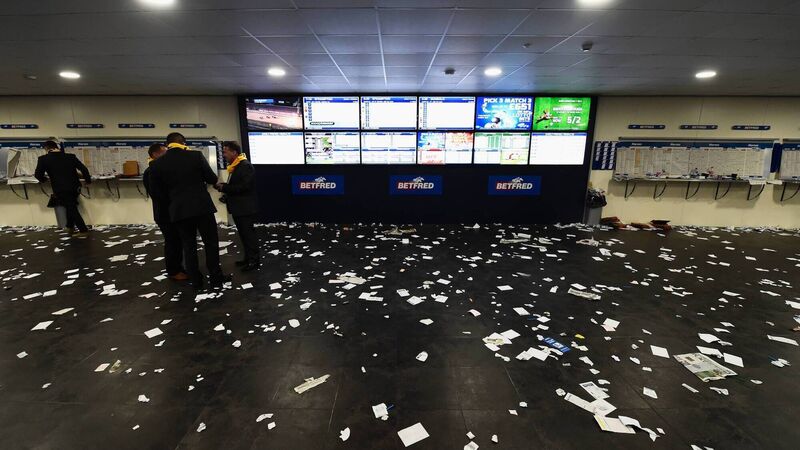How will proposed gambling legislation affect sports punters?

BEATEN DOCKETS: Losing betting slips are left strewn across a Betfred shop during the 2016 Cheltenham Festival. The industry is set for significant change.
Try from €1.50 / week
SUBSCRIBE
BEATEN DOCKETS: Losing betting slips are left strewn across a Betfred shop during the 2016 Cheltenham Festival. The industry is set for significant change. Picture: Mike Hewitt/Getty Images
If you hadn’t already heard gambling regulation is coming hard and fast — with sweeping changes across the €7 billion industry.
The Paddy Powers and BoyleSports of this world are rightly fearful of legislation, which will badly damage how it markets and communicates with customers and how it presents itself publicly.
Already a subscriber? Sign in
You have reached your article limit.
Annual €130 €80
Best value
Monthly €12€6 / month
Introductory offers for new customers. Annual billed once for first year. Renews at €130. Monthly initial discount (first 3 months) billed monthly, then €12 a month. Ts&Cs apply.
CONNECT WITH US TODAY
Be the first to know the latest news and updates
Newsletter
Latest news from the world of sport, along with the best in opinion from our outstanding team of sports writers. and reporters
Newsletter
Latest news from the world of sport, along with the best in opinion from our outstanding team of sports writers. and reporters
Saturday, February 14, 2026 - 10:00 AM
Friday, February 13, 2026 - 10:00 PM
Saturday, February 14, 2026 - 10:00 AM

Select your favourite newsletters and get the best of Irish Examiner delivered to your inbox
© Examiner Echo Group Limited